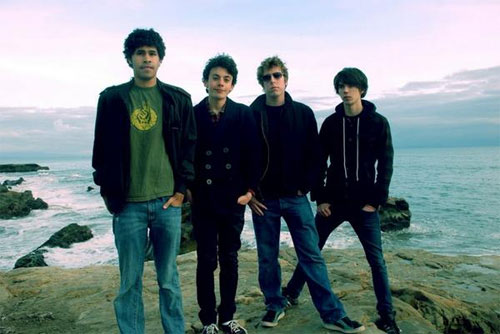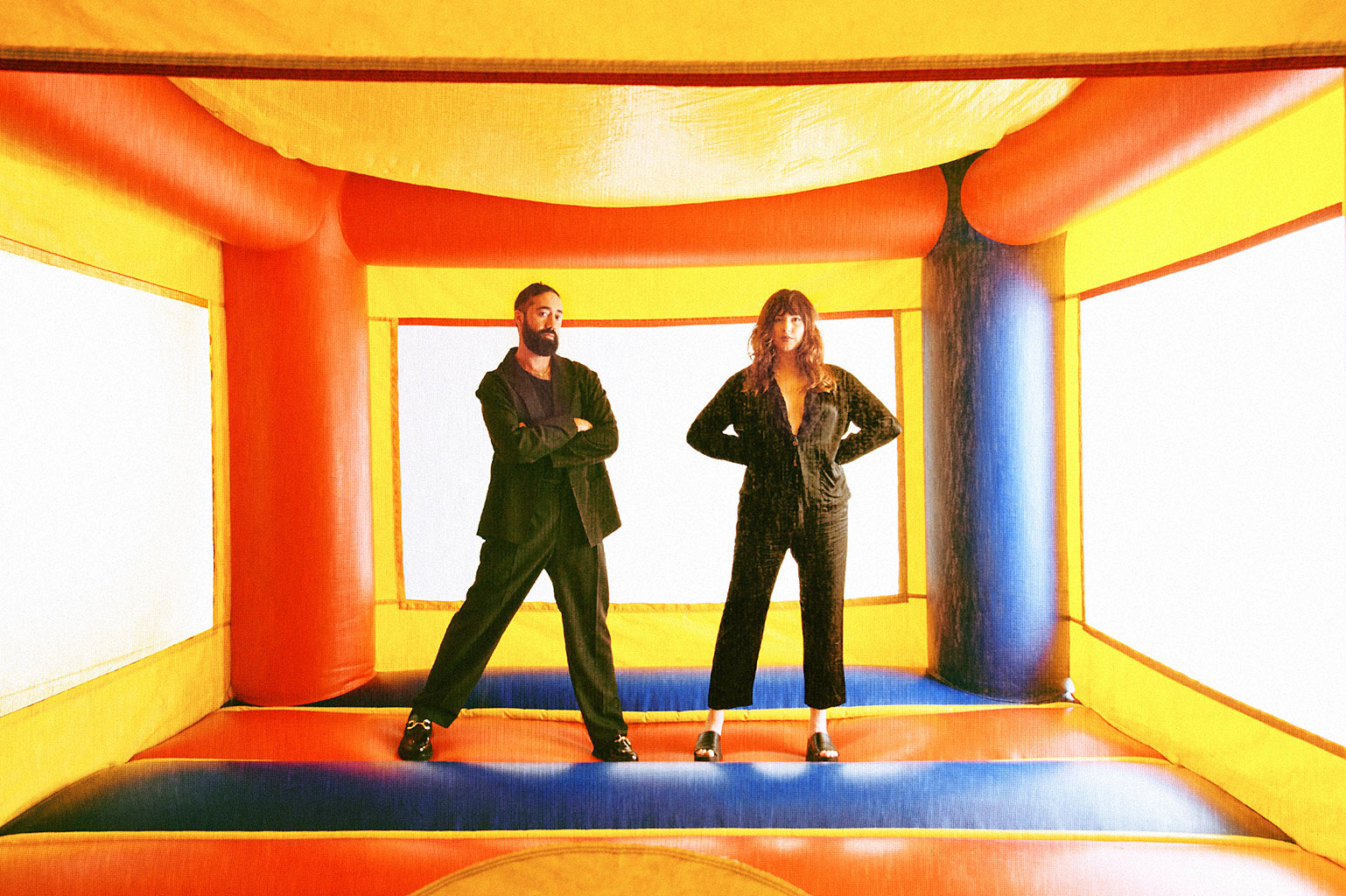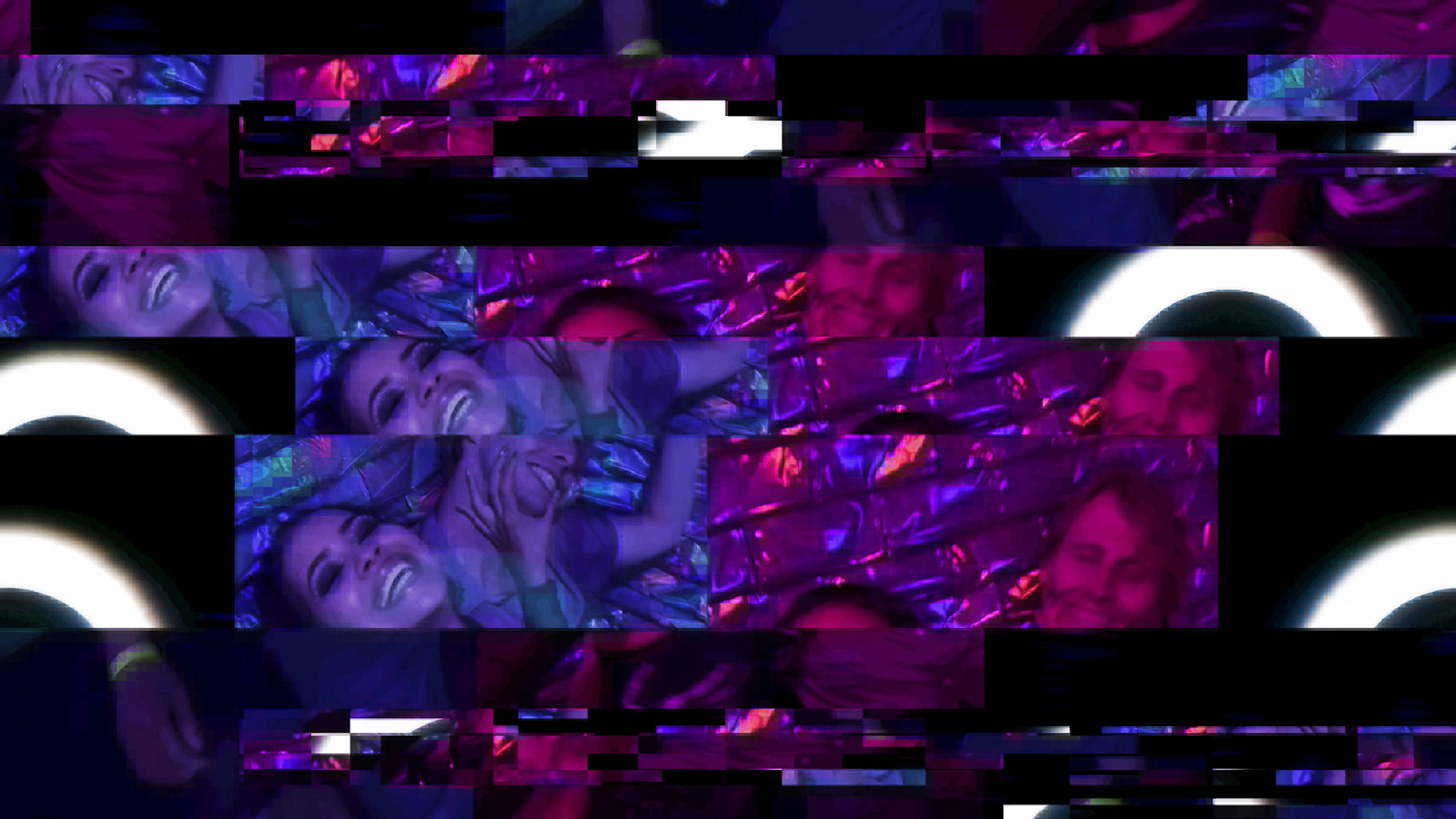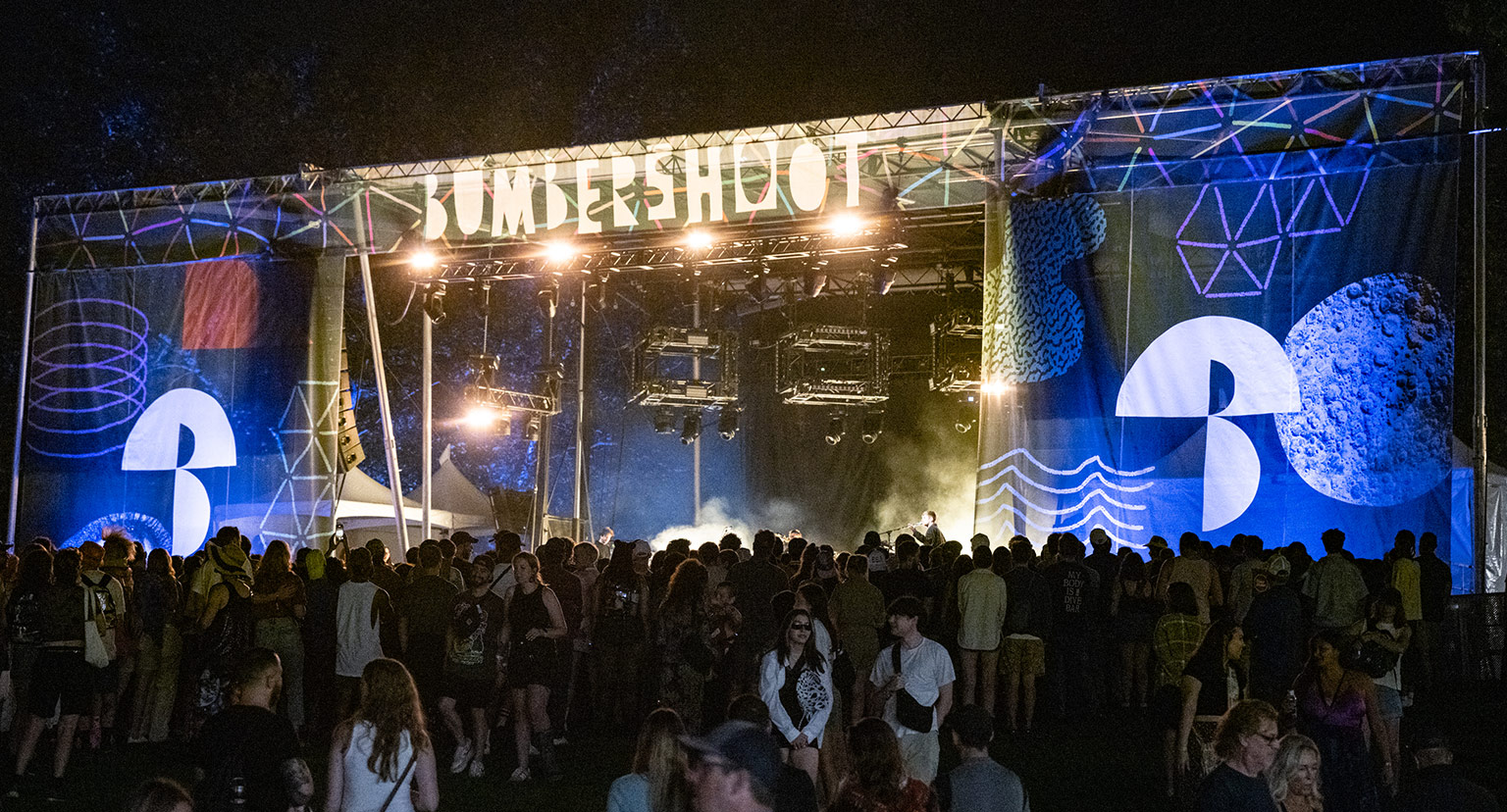 So, I know you guys have been through a few interviews already, so I don’t want to bore you with the same questions…
So, I know you guys have been through a few interviews already, so I don’t want to bore you with the same questions…
Noah Bond (NB): It’s fine; Mason’s mom gave us some tips for interviews, like, “maintain eye contact”…
That’s good, because I am actually recording this interview with my eyes.
Bond: It’s a new technology.
Yes, and it was expensive and painful. But let’s see, first off… who the fuck are you guys?
Jordan “Jordy” Topf: You want me to answer this one?
Bond: Sure. Who are you?
Topf: Should we say our names? We don’t need to say our names, do we? We’re The Vox Jaguars from Santa Cruz. We’re a new rock and roll band, playing a lot more shows in [San Francisco] lately. We had an EP come out on Anodyne Records on February 10th of this year. It’s been doing pretty well… we were number 48 on the college radio charts last week.
What?!?!
Mason Rosenberg: Yeah, it’s crazy.
Topf: I’ve been getting calls lately about how we’re getting played on XM Radio.
Wow! How long have you guys been together?
Trevor Hope: I think we started playing about 3 years ago. We started slow.
Bond: And then I came along! And we blew up!
Hope: Yeah, we got big, and then Noah joined…
Topf: We used to have a keyboardist named Sam Copperman, but he went off to school in Michigan. He’s a really good bassist, but he played keyboard.
Yeah, I remember him from that show at the Retox Lounge [in San Francisco] last year, where I met you guys and saw you guys for the first time.
Hope: Things started to get moving once we got our manager, Adam [Levin]. He found us through an article in a local paper. Since then, he’s helped move things along quite a bit.
Topf: He manages these other two bands that are really good — Foreign Born and Miniature Tigers… Miniature Tigers is from Phoenix and Foreign Born is from LA. Miniature Tigers is on tour with Ben Folds right now.
And you guys have played in LA, right?
Topf: Yeah, our last show out there was at The Knitting Factory in Hollywood, and that was with Scissors for Lefty.
Scissors has kind of joined forces with you guys for a number of shows; how do you know those guys?
Topf: They found us online, and then they asked us to play.
Hope: Wasn’t that their EP release in LA?
Topf: Yeah. They’d never seen us live, and I guess they just really liked our stuff when they heard it online. Brian [Garza], the singer, told us that they were recording their EP when they first heard us. The recording studio that they were at is called Talking House, and the engineer was surfing the net, and they were like, “Woah!” when they found us. Ever since then, we’ve played with them several times. Once in Hollywood, three times in Santa Cruz, and we recently played with them at Bottom of the Hill [in San Francisco].
How did the Bottom of the Hill show feel for you guys?
Bond: It was great.
Topf: I was pretty stoked on it.
Bond: But Jordy opened the show saying, “This is the first time we’ve played in San Francisco…” And then everyone cheers, and he’s like, “Wait, wait! …with our new EP!”
When I heard that, I didn’t hear the follow-up explanation about the EP — I thought, “Hey, that’s not true! I’ve seen these guys in SF before!”
Topf: Yeah. The crowd wouldn’t even let me finish.
They thought it was a period, when it really was a semi-colon.
Topf: Or a comma.
What brought you guys to play music in the first place? And this can be an individual question, too.
Topf: I heard Jimi Hendrix and then I got hooked.
Hope: Cliché.
Bond: Same with Trevor and Mason.
MR: I played guitar young… and then I stopped playing guitar. I don’t know why. I guess I just wanted to. I picked up bass because it was a lot more attractive.
Hope: Because you like the drums. Because bass and drums go together!
MR: Yeah.
What brought you guys into it?
Hope: I can remember back in elementary school, being in class… I was always tapping my fingers on the desk and other things. My parents ended up getting me a drum set, and I took some lessons. But then I quit for a little bit, because it was really hard. I started back up in junior high, and I’ve just been playing in school bands [since], and it’s just a lot of fun.
So, how long have you been playing drums this second time around?
Hope: Seven years.
Bond: For me, I used to play in a couple of reggae / ska bands. I was in this band called The Tranquils. I really liked playing music, but there were too many “bros” in that scene for me to feel comfortable.
Topf: I remember going to one of your shows, and it was the best thing ever!
Bond: I was actually way better at guitar back then.
Topf: Yeah, you were really good. I was like, “Holy Shit!”
Bond: I had this Charvel Jackson, and it was a shredder guitar. I learned the pentatonic scale and that was basically all I knew, and I’d just go up and down.
But it did the trick, right?
Bond: It did the trick. I just loved playing shows. I liked the attention. No, just kidding…
It sounds funny to say this, but, Noah, you were the last one to join the band?
Bond: Well, I get a call one day from Jordy. He heard me play at some shows…
You guys knew each other?
Bond: Yeah, I knew them since the beginning.
Topf: He had come to a bunch of our shows.
Bond: I actually stalked them at one point… no, just kidding. But, Jordy calls me right around the time Sam is going to go away to college.<br
Topf: It was in the summer sometime.
Bond: Yeah.
Hope: Originally, we wanted Noah to play keyboards and continue where Sam left off. But…
MR: He refused.
Hope: Once he joined the band, it turned out he didn’t know how to play keyboards at all!
Topf: Noah’s like, “I’ll try keyboards,” because our manager was going to come in and hear us play. It was right when Sam was leaving, or maybe he’d already left, and we had to teach Noah the parts before our manager came. He played keyboard, but that was the only time he played keyboard.
Bond: Yeah, right here in the practice space with our manager.
Topf: And after that he was like, “Okay, I’m playing guitar.” And I like it more with his guitar. Now, I think we sound fuller and more like an actual band. I mean, my guitar tone is kind of thin-sounding, so when we had Sam, I don’t think the keyboard filled it all in. [Dual guitars are] now essential to our sound. And I think it’s always stronger when there are two guitars in a band — it’s right in your face.
You talk about your sound… what is your sound exactly? Would you say you are “just rock and roll” or “indie rock” or something else?
Bond: We play rock songs, but I think we have originality.
Topf: I’d say we’re a rock and roll band, but we are not the archetypal sound. I’d say we’re a new take on an old thing, with other influences.
MR: We keep getting pegged as being “punk.”
Bond: Yeah, people say, “This is your punk fix, here!” [about us].
Topf: Wait until they hear the full-length!
I guess I could see some punk in there… but I wouldn’t picture you guys as that. I mean, I wouldn’t picture you guys as “indie rock” either, but maybe that’s because I don’t really understand what that means anyway.
Hope: I don’t think anyone really knows what it means.
Topf: They just throw it around.
Hope: It’s kind of blanketed terminology.
Yeah. I didn’t mean to say “just rock and roll” like it was a bad thing. I think that straight-up rock and roll is the way to be. But what makes you guys want to write songs? Do other players influence you?
Topf: I don’t believe in emulation. I think we have to create our own… I don’t believe that we need to have someone to copy. I’d rather take influences in a productive manner and take it in our own direction. I love it when a band has an influence but they credit it well.
Bond: I mean, for us, we all have sort of similar tastes in music, but overall, it is very different. We all bring something weird and different to the table when we come here. So, if we do have influences, it is all of that coming together to make something.
So, your music has juxtaposed influences all coming together. I often think about that being the right formula for songwriting: a certain vulnerability of different musical forces coming together in a fragile way.
Topf: We don’t really talk much about our sound; we just play. We’ll talk about each other’s playing, you know — about what we should fine tune — but we are not too concerned about what we sound like. I think we just go for what we have.
Bond: Yeah, I mean, what we write and play, we just wrote and played.
Topf: It comes from us. It doesn’t come from trying to take a heavy influence from one band because you like them a lot. We all like so much that it is almost impossible to do that.
Sure. How do you guys start the songwriting process?
MR: We just jam.
Bond: Yeah, some songs come around easy… for our song “Swift Street,” we just were jamming.
Topf: You were playing bass on that one, Noah.
Bond: Yeah, that was fun. I felt like, “I should just play bass,” except Mason is way better than me. But, usually, Jordy and I will come up with an idea for a song.
Then everyone plans and creates his own part?
Bond: Yeah, we’ll get the basic chord structure and then go from there.
Hope: I write drum parts based around the guitar parts. I think that is usually what Mason and I do.
MR: I try to write bass parts around the drums and the vocals.
Topf: Yeah, usually it starts with either Noah or me. Or sometimes, I’ll write an entire song and bring it to the table one practice, and then we’ll sit down and probably throw out a chorus idea and come up with something right there in practice.
Bond: The songs don’t really come to us in a dream…
Topf: No, but they do!
Bond: We had a vision.
Topf: We had a vision!
What’s up next?
Hope: Now that our EP is out, it is our chance to write a full-length album. And Noah and Jordy may go off to college in the fall, so we are hoping for great things.
Bond: We hope to record a full-length before then.
Topf: I’d much rather record a full-length this upcoming year and go to college next year. It’s hard sometimes because we don’t have ultimate guarantees; it’s expensive to record.
Bond: It’s hard, but we’ve gotten all these opportunities, thanks to our manager. But, all the hookups are slow-going; it takes some time for the process to work [itself] out.
Topf: Yeah, the music business is slow. People don’t want to hop on bands unless they have a really powerful feeling about the band.
But, I suppose you wouldn’t want it any other way, right? You wouldn’t want someone who didn’t believe in you to a strong degree.
Hope: I think people want a guarantee that we’re going to make them money, and we want a guarantee that they are going to give us money.
Topf: Or opportunities.
Bond: Yeah, just money to play.
Topf: Money to record.
Bond: Yeah, because we all have to work.
Do you guys play every day? I always think about Jack White who once said that he’s not the kind of guy who plays every day, and that if he did, his music wouldn’t sound like it does.
Hope: For me, I always want to be practicing, but I never make myself practice, so I never play as often as I should — that’s for sure.
Topf: I play every day.
Bond: Yeah, I mean, my guitar is right there. So, I just pick up the acoustic at least once a day.
It’s different with the drums because they are not as portable an instrument.
Hope: And, I never really want to come out here and practice all alone.
MR: I usually don’t have a bass to practice on, but I do practice every day with some air bass.
Now that you guys have been together for a few years, do you have any advice that you’d give to other bands that are starting out?
Topf: Play lots of shows.
Bond: Yeah.
Hope: Play what you like to play.
Topf: Yeah, and have fun. Fun is like a major thing, because if you are not having fun, then what’s the point?
Do you guys have fun?
Topf: Yeah, I have a lot of fun playing with these guys.
Hope: Go out and play. If you hide out by yourself, no one is going to know about you.
Topf: And, use all the avenues you can. Really use the internet… and use all the promotional outlets you can to get your name out there. Don’t be ashamed of one or another. Use the plethora of news and communication vehicles to get your name out there.
Bond: We talked about this in our interview with Pete [Mar] — about how local music is a community effort. You play with a band, and you start talking to them, and soon enough you are setting up other shows with them for later on. You know, in interviews, you talk about the other local bands that you like. It kind of propels itself forward. You do what you can for your friends. So… just make friends.
Hope: It’s all about connections.
END.






